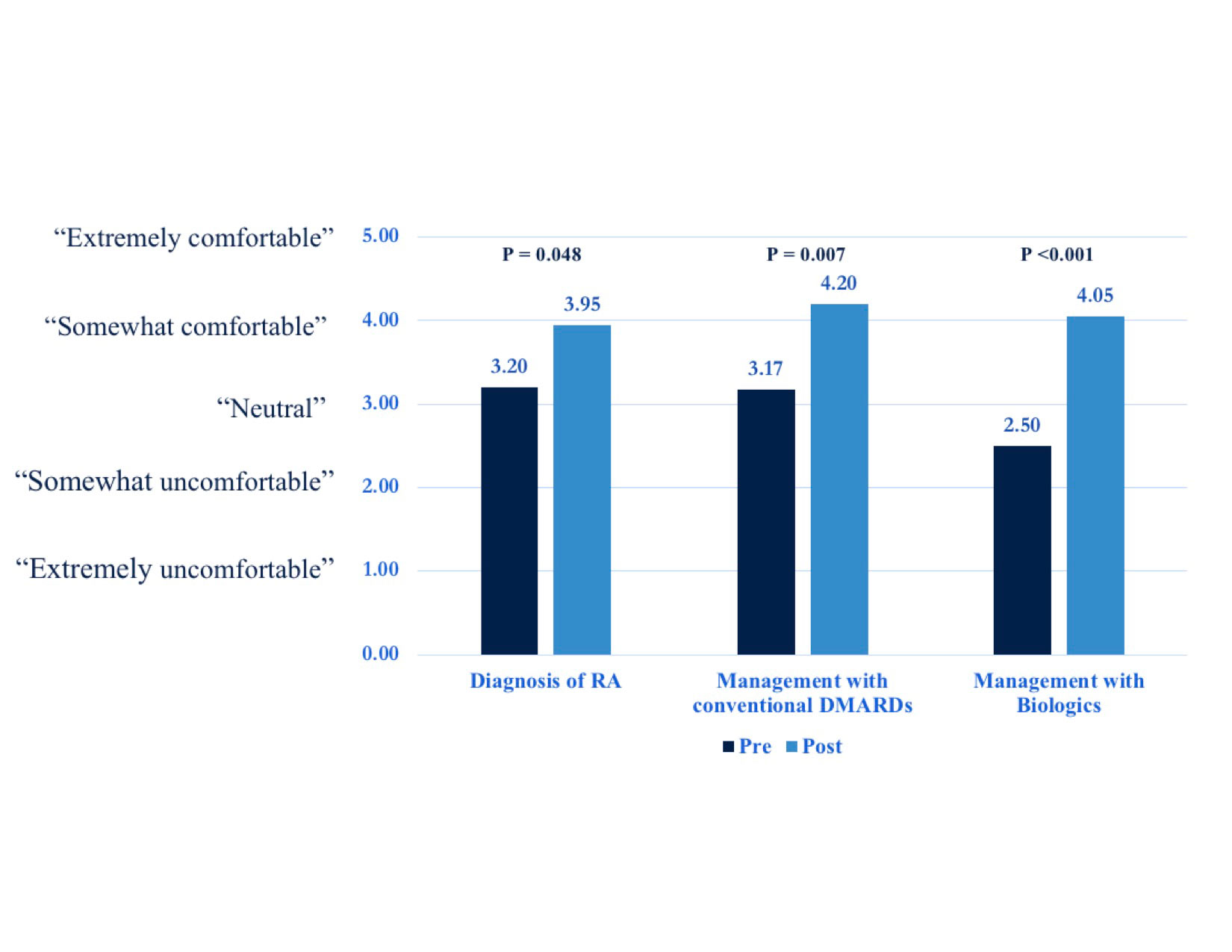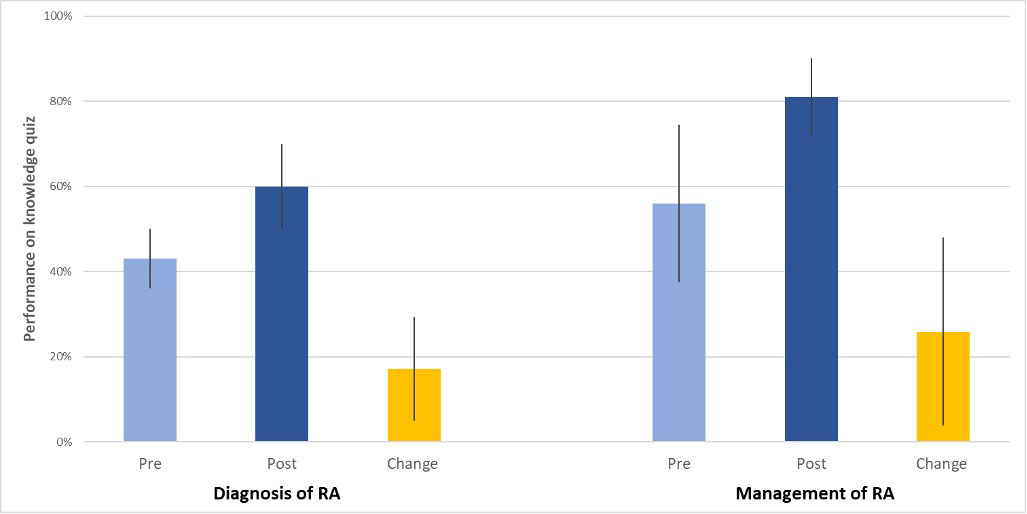Session Information
Date: Saturday, November 12, 2022
Title: Plenary I
Session Type: Plenary Session
Session Time: 11:30AM-1:00PM
Background/Purpose: The burden of rheumatoid arthritis (RA) in the United States falls disproportionately on communities of color and rural populations. The Navajo Nation is the largest American Indian reservation, spanning 27,000 square miles across 3 states, and is home to 250,000 tribal members. Despite the high prevalence of RA in this vulnerable population, the shortage of local rheumatology providers has shifted the provision of most RA care to primary care providers (PCPs) on the reservation. Our goal was to develop a novel RA training program for Navajo Area PCPs, and to study the impact of the program on PCPs’ knowledge and self-reported confidence in diagnosing and managing RA.
Methods: After conducting a needs assessment, we assembled an interdisciplinary team of rheumatologists, a pharmacist, and Navajo cultural interpreters to design a 12-week RA training program for PCPs, known as the Rheumatology Access Expansion (RAE) Initiative (Figure 1). We facilitated weekly interactive webinars, consisting of a didactic followed by RA case discussion. PCPs completed surveys before and after the course, with questions about their self-reported confidence in RA diagnosis and management, as well as a RA medical knowledge test. Confidence questions were grouped into 3 domains: RA diagnosis, RA management with conventional DMARDS, and management with biologics. Knowledge questions were grouped into 2 domains: RA diagnosis and RA management. We used paired t-tests to assess changes in PCPs’ confidence and knowledge test scores, and used a linear regression model to identify confidence and knowledge domain(s) with the greatest improvements after the training program. In the post-survey, PCPs rated the usefulness of each session on a Likert scale of 1 (“not at all useful”) to 5 (“extremely useful”) and descriptive statistics (mean [SD]) were calculated.
Results: 18 PCPs participated in the program (15 physicians, 1 nurse practitioner, 1 physician associate, 1 community health worker). 10 PCPs completed pre/post-training confidence ratings, 9 completed pre/post-training knowledge tests, and 17 completed the satisfaction survey. Post-training confidence ratings were statistically significantly higher than pre-training ratings in all three domains (p< 0.05, Figure 2). Management with biologics saw the greatest improvements in confidence ratings (p for comparison with improvements in diagnosis of RA = 0.023). Performance on the knowledge test increased by 22% (95%CI: 10-34%, p=0.001). Post-training performance was significantly higher than pre-training performance in both knowledge domains (p< 0.05, Figure 3). The mean (SD) session usefulness score across all 12 sessions was 4.52 (0.77) out of 5.
Conclusion: We successfully designed and implemented the RAE Initiative, a 12-week RA training program for Navajo Nation PCPs. PCPs rated the usefulness of the curriculum highly, and pre/post survey data showed that participants improved their RA medical knowledge and confidence in the diagnosis and management of RA. This program is now offered twice a year for PCPs in the Navajo Area, and can serve as a scalable model for the development of similar programs to support other vulnerable populations disproportionately affected by RA.
Note: Dr. Jennifer Mandal and Tabitha Carroway contributed equally to this abstract.
To cite this abstract in AMA style:
Mandal J, Carroway T, Izadi Z, Grant G, Margaretten M, Blanks S, Cabrera N, Emanuel P, Hong J, McCalla S, McDougall J, Nasrallah C, Pillsbury M, Yazdany J. The Rheumatology Access Expansion (RAE) Initiative: Improving Rheumatoid Arthritis Care on Navajo Nation Through Primary Care Provider Education [abstract]. Arthritis Rheumatol. 2022; 74 (suppl 9). https://acrabstracts.org/abstract/the-rheumatology-access-expansion-rae-initiative-improving-rheumatoid-arthritis-care-on-navajo-nation-through-primary-care-provider-education/. Accessed .« Back to ACR Convergence 2022
ACR Meeting Abstracts - https://acrabstracts.org/abstract/the-rheumatology-access-expansion-rae-initiative-improving-rheumatoid-arthritis-care-on-navajo-nation-through-primary-care-provider-education/



